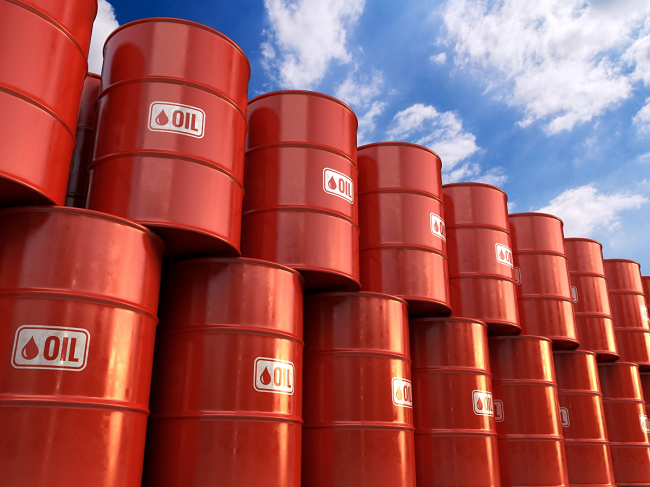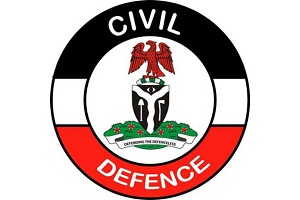The rising prices of crude since the Russia-Ukraine war began, coupled with exchange rate instability in Nigeria, among others, have pushed up the prices of refined petroleum products across the country.
Industry figures seen on Tuesday showed that the cost of Brent, the crude against which Nigeria’s oil is priced, rose above $133/barrel around 6pm Nigerian time. The commodity had traded below $90/barrel before the war in Ukraine started.
Oil marketers reported that the rise in global crude oil prices had been pushing up the cost of Automotive Gas Oil, popularly called diesel; JetA1, otherwise called aviation fuel; as well as Premium Motor Spirit, also known as petrol.
The position of oil marketers on the impact of crude price hike on refined petroleum products in Nigeria had also been confirmed by the Federal Government through the Minister of State for Petroleum Resources, Chief Timipre Sylva, and the Group Managing Director of the Nigerian National Petroleum Company Limited, Mele Kyari.
Findings on Tuesday showed that diesel sold for between N550 – N625/litre in the few filling stations that dispensed the commodity.
“Unlike PMS, diesel or AGO has been deregulated and the price is basically determined by the cost of crude oil, foreign exchange rate and few other factors,” the President, Petroleum Products Retail Outlets owners Association of Nigeria, Billy Gillis-Harry, stated.
He added, “While diesel is a deregulated commodity, petrol is not deregulated but is rather subsidised and you can imagine the amount of subsidy being spent on a litre of petrol currently.”
Gillis-Harry explained that the actual cost of petrol without subsidy was usually a little higher than that of diesel, stressing that if not for subsidy, PMS would be selling around N550 to N600/litre going by the rise in crude price.
The approved subsidised pump price of PMS in Nigeria is between N162 to N165/litre, but oil marketers stated that the actual cost should be a little higher or about the same price of diesel had it been PMS was deregulated.
The PETROAN president further stated that the N3tn that was projected by the government as subsidy spendings in 2022 might double before the end of the year if crude oil price continues to rise.
He said, “We’ve been saying this forever that we should deregulate and allow market forces to determine the price of PMS at the pumps. This subsidy we are paying, at the end of the day may not be the best for this country.
“Today the government is proposing N3tn for subsidy this year, but at the end of the day it might rise up to N5tn or N6tn going by the rise in crude oil price.”
Kyari had said, “Today we are paying N162/litre (for petrol). I am sure many people buy AGO (diesel) in the market and it is selling at N280/litre in the market today.
“So (there is) nowhere in the world diesel sells more expensive than PMS. That means that the price of petrol anywhere in the world, assuming you are going to sell it at the market, you are going to sell it above that price you have seen.”
This implies that at the current pump price of about N600/litre for diesel and N165/litre subsidised rate for petrol, the Federal Government is spending over N400 as subsidy on every litre of petrol consumed in Nigeria.
As the price of diesel grew, airline operators stated on Tuesday that the cost of aviation fuel had also been on the increase, a development that led to flight cancellations and delays, leaving many passengers stranded at airports.
As a result of the increase in the prices of petroleum products especially diesel, the Manufacturing Association of Nigeria on Tuesday said that Nigerians should expect higher inflation rates and a surge in the prices of goods and services as the cost of diesel rises.
Speaking on behalf of MAN, the Chairman, Infrastructure Committee, Ibrahim Usman, said the rise in inflation would be driven by higher cost of production for manufacturers who depend largely on diesel for production.
Usman said, “the rise in the price of diesel means higher production cost for manufacturers because most of us rely on diesel to produce. So when the cost of production is high, then manufactured products will be sold at a higher price, this is to enable the manufacturer to make a profit after-sale and stay afloat.
“So basically it will increase the inflation in the country which is already high, further compounding the problems and plight of Nigerians.”
He said that the government can prevent the expected consequences by providing adequate power supply across the country and offering discounts on electricity tariffs to manufacturers.
“To avoid these things from happening, the government should make sure that it creates a situation whereby the cost of electricity is reduced for manufacturers and that power supply is accessible to producers,” Usman said.













